Making an Impact: Smithies Work for Sustainability on Many Fronts
Sustainability
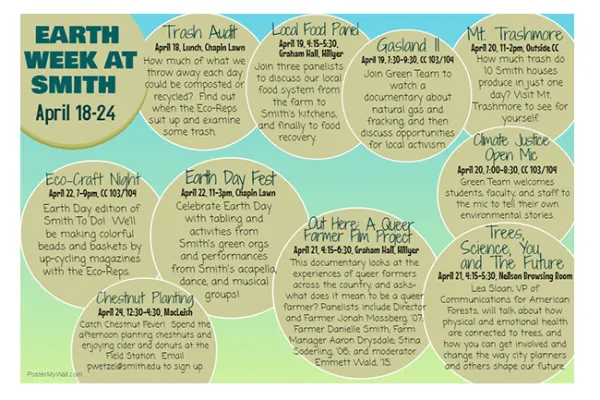
Published April 20, 2016
During her time at Smith, Siiri Bigalke ’16J says she’s seen a change in how Earth Day is celebrated and understood on campus.
Note that the date of the Earth Day Festival has been moved to Thursday, April 21
“It’s not just about conservation anymore,” says Bigalke, an environmental science and policy major who graduated in January.
“The work of so many social justice movements is now part of the environmental movement, and students understand the issues through those lenses,” she explains. “I’m happy to see people making those connections during Earth Week.”
This year’s Earth Week events at Smith prove Bigalke’s point. Beginning with a waste audit today from noon to 1 p.m. on Chapin Lawn, the campus will host an array of educational and hands-on activities focused on all aspects of sustainability. Topics covered range from herbal medicine to tree science to urban planning.
The schedule, available on the Center for the Environment, Ecological Design and Sustainability‘s website, includes lectures, films, a Bike Kitchen open house, a climate justice open mic and an outdoor Earth Day Festival, Thursday, April 21, from 11 a.m. to 3 p.m. on Chapin Lawn. (The festival was rescheduled from April 22 because of forecasted rain.)
Bigalke and four other Smithies shared their thoughts about what inspired them to become active on the sustainability front.
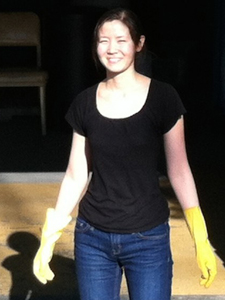
Eleanor Adachi ’17, engineering and physics major
“For me, sustainability was one of the draws of Smith. Last spring, I decided to do a special studies project on composting. We conducted trash audits on waste from four houses and found that up to 50 percent by weight could potentially be composted. We brought all the trash to the basement of one of the science buildings and went through it with gloves. I shared my findings with the Office of Campus Sustainability and Facilities Management, and now there are nine houses that have composting pilot programs. I’m hoping those programs will just become part of Smith culture. I’m also a member of the Study Group on Climate Change and a leader in Divest Smith College. This summer, I’ll be doing research on solar cells at the Colorado School of Mines. At Smith. I’ve learned how climate change intersects with racism, sexism, capitalism and other social issues. It’s an important part of the education here. As students, we’re going to be leaders on climate change. My work here on sustainability and climate justice reflects how Smith is a microcosm of the larger world.”
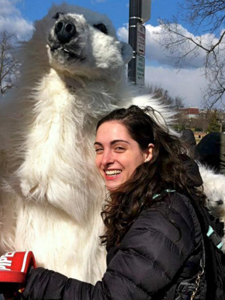
Claire Shope ’16, theatre and environmental science and policy major
“I come from a very environmentally-minded family, and I’ve taken that background and used it at Smith to pursue an environmental science and policy degree and work with the Office of Campus Sustainability. Being at Smith has definitely strengthened my ability to conceptualize issues related to sustainability and communicate about those issues and environmental problems. On Monday, April 18—the start of Earth Week—we are going to have a ‘trash audit’ with people dressed in protective gear sorting through the trash and figuring out what percentage could have been composted or recycled so that people can have a broader awareness of how much they could be doing to reduce waste. To share those facts and raise even more awareness, on Wednesday, April 20, there’ll be a display of a mountain of trash near Chapin Lawn, with a sign showing statistics about how much recyclable and compostable material actually gets put in the trash. I’m also working on an environmental capstone project to get more incoming first-year students to have a basic knowledge of climate change and environmental issues and how they can have an impact through their personal choices. After Smith, I see myself at the intersection between environmental science and the general public—communicating to the public on a larger scale.”
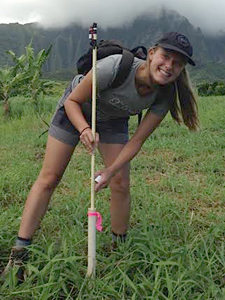
Siiri Bigalke ’16J, environmental science and policy major
“The summer after my first year at Smith, I went to the United Nations Conference on Sustainable Development (Rio+20 Earth Summit), which was an amazing experience. It was in Brazil first of all, which was awesome! My experience there did make me disillusioned with international negotiations on these issues. There’s a lot of gridlock that happens at those conferences. It made me realize I need to work on sustainability issues in my own community—that’s where I can have the most impact. I also attended the U.N. Climate Change Summit in Doha, Qatar, in 2012. I went to help promote youth causes, and that was the best part of being there. The young people I met weren’t going to let the inaction of the negotiators stop them. This was not long after the Arab Spring, which gave a lot of youth agency to work on climate issues. I’m hoping to go to the next COP Summit in Morocco in the fall if I can find the funding. Since I graduated in January, I’ve been working with Prof. Camille Washington-Ottombre, doing research on sustainability on other campuses. I’m applying to graduate school in the fall for earth system sciences or physical geography. I’m also taking a mountaineering course this summer—for fun and in preparation for future field work on climate change.”
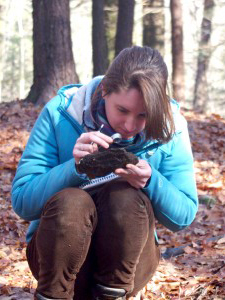
Julia Graham ’16, environmental science and policy major
“My family is really involved in sustainability—my parents always biked to work, we had a compost pile, and we grew a lot of our own vegetables in our garden—so that set me on the course. I’ve always been really passionate about recycling, composting, growing food, and environmental justice and how that intersects with different identities. I transferred to Smith as a sophomore, and since then I’ve worked as an intern for CEEDS, as an eco-rep coordinator and as the orchard manager at MacLeish Field Station. This year, I’ve been working on a 3D map of the field station that can help people see all the trails it offers. After my sophomore year, I received Praxis funding to go to a permaculture farm in Ecuador for two months, where I did permaculture design certification and worked in an edible forest garden. Smith has definitely opened more doors for me in terms of sustainability—I’m now really interested in environmental justice and mapping the environment and interpreting the environment in different ways. I’m interested in someday pursuing a graduate degree in environmental and human geography, and I’d love to study the history of farming, farmland and farmers in the Pioneer Valley.”
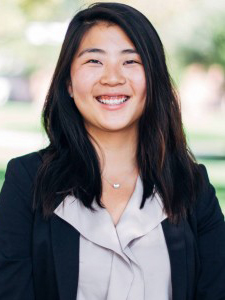
Hannah Jun ’16, government major
“My interest in sustainability is definitely something I’ve developed at Smith. I’m a government and economics major, so I’m attracted to understanding the political economy of ecology. For my junior year abroad, I went to the London School of Economics, where economists were looking at climate change in terms of political economy—how a tax on carbon, for example, can incentivize people to make changes. Coming back, I wanted to apply what I’d learned. I’m now working as an intern with Smith’s Office of Campus Sustainability, assessing what other people have done well at other campuses with carbon offsetting. I’ve learned there are a lot of ways to tackle sustainability. There’s a difference between coming to it as a consumer and as an active citizen. You could buy green products all your life, but that’s a very limited way to think about activism. Engaging other people is harder, but that’s what makes an impact. Understanding the policy landscape is important. I would recommend that students stop by the Office of Campus Sustainability. There’s so much going on here that’s important and that you can learn from.”